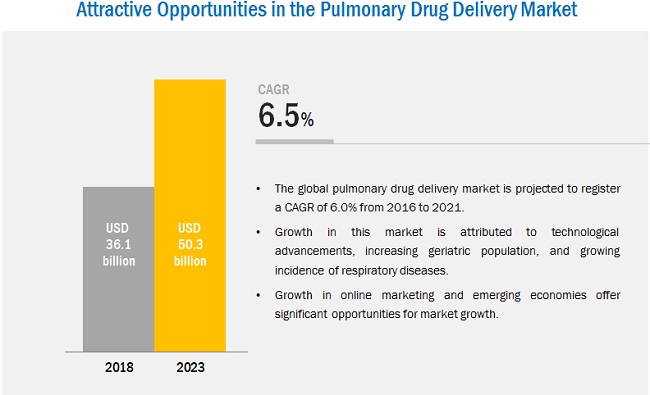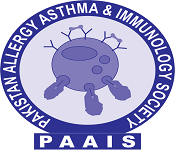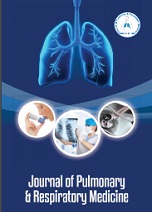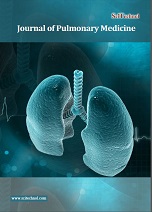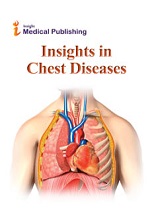Theme: Revolutionizing Respiratory Care: Breathe Well, Live Healthier
Venue: Holiday Inn Paris – Marne La ValléeRespiratory-2019
Conference Series is hosting the 10th Annual Congress on Pulmonology & Respiratory Medicine (Respiratory-2019) during February 27-28, 2019 | Paris, France The Respiratory Conference is based on the theme "Revolutionizing Respiratory Care: Breathe Well, Live Healthier".
Respiratory Conference welcomes pulmonologists and Respiratory Medicine specialists across the globe to discuss current trends in respiratory disease screening to diagnosis, treatment and management. Strategic sessions of the Pulmonary & Respiratory Medicine covering about almost all of the Respiratory Diseases such as COPD, Asthma, Allergy, cystic fibrosis, pneumonia, tuberculosis, emphysema, Lung Cancers, complicated chest infections, pulmonary fibrosis, Sleep Apnea, Interstitial lung disease, Lung nodules , chronic cough, Influenza, mycobacterial infection , Pediatric Pulmonary, Bronchiectasis, and Critical Care etc. The major aim is to upgrade the practicing knowledge of the physicians to improve the respiratory patients care and management.
This Pulmonology & Respiratorycare Congress composed of well organized scientific sessions, plenary sessions, Oral presentations, Poster presentations, one to one meetings, networking sessions, e-poster presentation, Young Researcher Forums (YRFs), B2B meetings, International workshops, Symposiums, Industrial sessions, Exhibitor presentations etc.
Respiratory Medicine Conference 2019 welcomes the multidisciplinary medical professionals, clinicians, and researchers associated with the diagnosis, treatment associated with the diagnosis, treatment and management of respiratory diseases and allied fields. This Respiratory Congress is the best platform that would help the Pulmonologists and Respiratory care professionals to get the insights and latest trends to improve the patients care. All the researchers working in the field of Pulmonology, Respiratory Medicine, Asthma, Pneumonia, emphysema, tuberculosis, COPD, lungs diseases, Lung Cancer, complicated chest infections and other allied fields will be of interest. The Scope of this Pulmonology & Respiratory Medicine Conference is for the below professionals, but not limited to:
- Pulmonologists
- Respiratory medicine
- Respiratory physicians
- Respiratory disease specialists
- Allergy and Immunology
- General Medicine & Internal Medicine
- Respiratory Therapy
- Radiology & Radiotherapy
- Physiotherapy
- Nursing
- Behavioral Science
- Environmental and Occupational Health
- Infectious Disease
- Pediatric Pulmonary, Critical Care, and Sleep
- Cardiology
Respiratory 2019 Conference Paris will enlighten the participants by providing the latest clinical updates, recent advancements in the arena of pulmonology & Respiratory care. This Respiratory Congress will help the physicians and practitioners globally to share their experience and to adopt the best practices, to strengthen the clinical collaborative research and to network among each other. Eminent Speakers, discussion on novel technologies and modern updates in the lung and respiratory system are the unique attribution of this Respiratory Conference. Dedicates sessions on Pulmonology, Respiratory care, COPD, Asthma will further help the participants to upgrade their knowledge.
By attending the Respiratory Congress 2019 Paris-France, can get the insights of:
- Recent trends & techniques of Respiratory Medicine & Critical care
- Upgrade yourself with latest innovations to optimize the treatment process of Respiratory Diseases
- Discuss the current challenges & update with future opportunities in improving respiratory care in future era
- Assess the treatment gaps of various pulmonary & Respiratory diseases
- Update yourself with ne strategies of diagnosing Sleep Apnea, Asthma, Allergy, COPD and other related diseases and define the new treatment strategies
- Review the efficacy of spirometry access of breathing partten and to identify various disease conditions like Asthma, COPD, pulmonary fibrosis, cystic fibrosis and to optimize the non-invasive mechanical ventilation process in case of respiratory failure.
- Chronic Obstructive Pulmonary Disease
- Common Diagnostic Procedures in Respiratory Medicine
- Occupational and environmental lung disease
- Lung Transplantation
- Pulmonary Hypertension
- Lung Cancer: Screening, Diagnosis & Treatment
- Asthma and Allergy
- Pneumonia
- Chronic Bronchitis
- Emphysema
- Thoracic Tumors
- Pulmonary diseases: Treatment, Diagnosis and therapies
- Paediatric Pulmonology & Critical care
- Airway and Therapeutic Devices
- Advancements in Lung Surgery
- Pulmonary Rehabilitation
- Pulmonary Function Testing
- Lung infections & Management
- Respiratory Tract Infections
- Cardio Pulmonary Disorders
- Respiratory and Sleep Medicine
Chronic Obstructive Pulmonary Disease
Chronic obstructive pulmonary disease (COPD) is a chronic inflammatory lung disease it causes obstructed airflow from the lungs. Chronic obstructive pulmonary disease Symptoms includes breathing difficulty, cough, mucus (sputum) production and wheezing. Chronic obstructive pulmonary disease caused by long-term exposure to irritating gases or particulate matter, most often from cigarette smoke.
Emphysema and chronic bronchitis are the two most common conditions that contribute to chronic obstructive pulmonary disease. Most instances of pulmonary diseases can be prevented by lessening presentation to hazard factors this incorporates diminishing rates of smoking and enhancing indoor and open air quality. While treatment can moderate declining, no cure is known.
Medications incorporate halting smoking, inoculations, respiratory recovery, and regularly breathed in bronchodilators and steroids. A few people may profit by long haul oxygen treatment or lung transplantation. In the individuals who have times of intense compounding, expanded utilization of prescriptions and hospitalization might be required.
There are distinctive sorts of COPD. Each compose may influence how well unique medications function, how your manifestations influence your regular day to day existence, and how they advance. On the off chance that you have another wellbeing condition notwithstanding COPD., for example, hypertension, coronary illness, acid reflux, sadness, or diabetes, this can likewise influence your COPD.and how it is overseen.
Lung Transplantation or aspiratory transplantation is a surgery in which a patient's sick lungs are somewhat or completely supplanted by lungs which originate from a benefactor. Giver lungs can be recovered from a living contributor or an expired benefactor. A living benefactor can just give one lung flap. With some lung illnesses a beneficiary may just need to get a solitary lung. With other lung ailments, for example, cystic fibrosis it is basic that a beneficiary gets two lungs.
Lung Transplantation is an acknowledged methodology of treatment for cutting edge organize lung malady. Since the mid-1990s, in excess of 25,000 lung transplants have been performed at revolves the world over. The organization for human services arrangement and research in the United States has presumed that lLung Transplantation has developed as a clinical technique accomplishing an ideal hazard advantage proportion and worthy 1-and 2-year survival rates.
The International Society for Heart and Lung Transplantation keeps on checking lung transplantation and has a progressing registry, which is accounted for every year. Once the contributor organ ends up accessible it will be assessed by our group. In the event that it passes the criteria set by our group, the organ will be acknowledged for transplantation. Single lung, twofold lung or consolidated heart-lung transplant will be finished relying upon the illness of the patient.
Normally patients with bronchiectasis, cystic fibrosis and aspiratory hypertension will profit by twofold lung transplantation. The transplantation will be performed under general anesthesia. The medical procedure for the most part takes anyplace between 6 to 10 hours contingent upon whether it is single or twofold lung and if confusion happens.
Pulmonary Hypertension defined as a pulmonary arterial pressure greater than 25 mm Hg at rest or greater than 30 mm Hg during exercise, is often characterized by a progressive and sustained increase in pulmonary vascular resistance that eventually may lead to right ventricular failure. It can be a life-threatening condition if untreated. Therapy for Pulmonary Hypertension is targeted at the underlying cause and its effects on the cardiovascular system.
Pulmonary Hypertension (PHT) is high blood pressure in the heart-to-lung system that delivers fresh blood to the heart while returning used blood back to the lungs. Unlike systemic blood pressure, which represents the force of your blood moving through the blood vessels in your body, pulmonary blood pressure reflects the pressure the heart exerts to pump blood from the heart through the arteries of the lungs. In other words, it focuses on the pressure of the blood flow in your lungs.
Pulmonary Hypertension can develop slowly, without early signs and symptoms. When symptoms do occur, they may be attributed to asthma or other lung or heart conditions. To diagnose Pulmonary Hypertension, the doctor may ask about the symptoms and risk factors, including other medical conditions and family history. Having a family member with Pulmonary Hypertension increases the risk of developing the disease Medical evaluation.
Physicians may recommend tests and procedures to diagnose Pulmonary Hypertension and discover its cause and severity. Common diagnostic tests include an echocardiograph, chest X-ray, electrocardiogram (EKG) and catheterization of the right heart. Discovering the underlying cause may involve a chest CT scan, chest MRI, lung function tests, polysomnogram (PSG), lung ventilation/perfusion scan and blood tests.
Asthma and Allergy is asthma caused by an allergic reaction. It’s also known as allergy-induced asthma. Allergic asthma is the most common type of asthma. About 90% of kids with childhood asthma have allergies, compared with about 50% of adults with asthma. The symptoms that go along with allergic asthma show up after you breathe things called allergens like pollen, dust mites, or mold. Because allergens are everywhere, it's important that people with allergic asthma know their triggers and learns how to prevent an attack.
During asthma, when the airway comes into contact with a trigger, the linings of the airway become inflamed and narrow. Mucus clogs and tightens the airways, making it difficult for someone having the breath. Each individual case of asthma is different, and each person has different reactions to various triggers. Some allergens are more common than others.
In an asthma attack the muscles around the airways can become swollen and inflamed with increased mucus production resulting in one or more of the following symptoms, difficulty breathing, difficulty speaking, experiencing a wheeze, blue colour to the lips and feeling distressed.
An allergic response occurs when immune system proteins mistakenly identify a harmless substance, such as tree pollen, as an invader. In an attempt to protect the body from the substance, antibodies bind to the allergen. The chemicals released by your immune system lead to allergy signs and symptoms, such as nasal congestion, runny nose, itchy eyes or skin reactions. For some people, this same reaction also affects the lungs and airways, leading to asthma symptoms.
Pulmonary diseases: Treatment, Diagnosis and therapies
Diagnosis: Specialist will audit the signs and side effects, talk about the family and restorative history, and examine any presentation necessary to lung aggravations particularly tobacco smoke. Specialist may arrange a few tests to analyse the condition. Tests incorporate Lung (aspiratory) work tests, Chest X-beam, CT examine, blood vessel blood gas examination and Laboratory tests.
Treatment: Smoking Cessation the most basic advance in any treatment get ready for COPD. Other treatment incorporates Bronchodilators, breathed in steroids, Combination inhalers, Oral steroids, Theophylline and anti-infection agents. An analysis of COPD isn't the apocalypse. The vast majority have mellow types of the ailment for which little treatment is required other than smoking discontinuance. Notwithstanding for further developed phases of malady, powerful treatment is accessible that can control side effects, decrease your danger of confusions and intensifications, and enhance your capacity to lead a dynamic life.
Therapies: Doctors regularly utilize these extra treatments for individuals with direct or extreme COPD.
Oxygen therapy. If there isn't enough oxygen in your blood, you may need supplemental oxygen. There are several devices to deliver oxygen to the lungs, including lightweight, portable units. Some people with COPD use oxygen only during activities or while sleeping. Others use oxygen all the time. Oxygen therapy can improve quality of life and is the only COPD therapy proven to extend life.
Pulmonary rehabilitation program: These programs generally combine education, exercise training, nutrition advice and counseling. Pulmonary rehabilitation may shorten hospitalizations, increase the ability to participate in everyday activities and improve the quality of life.
Pneumonia is an infection in one or both lungs. It can be caused by bacteria, viruses, or fungi. Bacterial pneumonia is the most common type in adults. Pneumonia causes inflammation in the air sacs in your lungs, which are called alveoli. The alveoli fill with fluid or pus, making it difficult to breathe. When the germs that causePneumonia reach your lungs, the lungs' air sacs (alveoli) become inflamed and fill up with fluid.
When the person hangs the Pneumonia, oxygen may have trouble reaching the blood. If there is too little oxygen in the blood, the body cells can't work properly. Because of this and the risk of the infection spreading through the body, pneumonia can cause death. Pneumonia affects the lungs in two ways. It may be in only one part, or lobe, of your lung, which is called lobar pneumonia. Or, it may be widespread with patches throughout both lungs, which is called bronchial pneumonia.
Pneumonia is generally caused by contamination with infections or microbes and less ordinarily by different microorganisms, certain solutions and conditions, for example, immune system ailments. The five primary drivers of Pneumonia, extra indications and hazard factors that expansion your odds of getting pneumonia.
Pneumonia can be analyzed by chest X-beam, oximetry, Bronchoscopy, pee test, CT scan. Anti-toxin, antiviral, and antifungal medications are utilized to treat pneumonia, contingent upon the particular reason for the condition. Most instances of bacterial Pneumonia can be dealt with at home with oral anti-toxins, and a great many people react to the anti-infection agents in one to three days.
Chronic Bronchitis is one sort of COPD. The aggravated bronchial tubes deliver a great deal of bodily fluid. This prompts hacking and trouble relaxing. Cigarette smoking is the most widely recognized reason. Taking in air contamination, exhaust, or clean finished an extensive stretch of time may likewise cause it.Chronic Bronchitis is characterized as a hack that happens each day with sputum generation that goes on for no less than 3 months, two years in succession.
This definition was produced to help choose uniform patient populaces for inquire about purposes, for instance, to consider medicine treatments for treatment of incessant bronchitis. A significant number of the bronchi create ceaseless irritation with swelling and overabundance bodily fluid generation. The irritation causes an adjustment in the covering cells of the aviation routes to shifting degrees. Numerous cells that line the aviation route lose the capacity of their cilia and in the long run the ciliated cells are lost.
Numerous other breathed in aggravation can likewise bring about perpetual bronchitis. Viral and bacterial diseases that outcome in intense bronchitis may prompt ceaseless bronchitis if individuals have rehashed sessions with irresistible operators. Likewise, basic sickness procedures may make unending bronchitis grow, yet these are occasional causes contrasted with cigarette smoking.
Anti-infection agents: Occasionally, anti-toxins are utilized to treat unending bronchitis intensifications caused by bacterial diseases. Wide range anti-toxins are regularly the decision. Treatment can help with your indications. Persistent history and physical exams help analyse endless bronchitis, while different tests, for example, chest X-beams, pneumonic capacity tests, and CT imaging studies may likewise be utilized.
Emphysema is a long haul, dynamic malady of the lungs that fundamentally causes shortness of breath due to over-swelling of the alveoli (air sacs in the lung). In individuals with emphysema, the lung tissue associated with trade of gases (oxygen and carbon dioxide) is disabled or crushed. Emphysema is incorporated into a gathering of sicknesses called endless obstructive aspiratory illness or COPD (pneumonic alludes to the lungs).
Cigarette smoking is by a wide margin the most hazardous conduct that makes individuals create emphysema, and it is likewise the most preventable reason. Other hazard factors incorporate a lack of a catalyst called alpha-1-antitrypsin, air contamination, aviation route reactivity, heredity, male sex, and age. Shortness of breath is the most widely recognized side effect of emphysema. Hack, at times caused by the generation of bodily fluid, and wheezing may likewise be side effects of emphysema.
Emphysema typically grows gradually. It Might not have any intense scenes of shortness of breath. Moderate disintegration is the manage, and it might go unnoticed. This is particularly the case in the event that you are a smoker or have other therapeutic issues that point of confinement the capacity to work out.
Emphysema is called an obstructive lung malady since wind stream on exhalation is impeded or halted in light of the fact that over-expanded alveoli don't trade gases when a man breaths because of almost no development of gases out of the alveoli. Analysis and TestsAlpha-1 Antitrypsin Test, Pulmonary Function Tests and Spirometry .Treatment for the emphysema incorporates COPD drug, lung transplant, and medical procedure.
Thoracic disease is the tumor of chest and lungs locale. The Lowe Center for Thoracic Oncology treats lung tumor non-little cell lung growth, little cell lung malignancy, and mesothelioma and different diseases of organs inside the chest. Delicate tissue chest divider tumors frequently show as a restricted mass without different manifestations.
Numerous chest divider tumors are identified unexpectedly on imaging examines improved the situation other clinical reason. A few patients have fever. Patients for the most part don't have torment until the point that the tumor is progressed. Conversely, essential cartilaginous and bone tumors are regularly agonizing. Patients with chest divider tumors require chest x-beam, CT, MRI, and once in a while PET– CT to decide the first site and degree of the tumor and whether it is an essential chest divider tumor or a metastasis. Biopsy and histologic assessment affirm the conclusion.
Most chest divider tumors are treated with careful resection and reproduction. Recreation frequently utilizes a blend of myocutaneous folds and prosthetic materials. The nearness of a threatening pleural radiation is a contraindication to careful resection .Other Treatments incorporates; Chest divider resections include evacuating a segment of the ribs and the muscles of the chest lung malignancy develop into the chest divider. The technique might possibly require the help of a plastic specialist for extra remaking.
Thoracic surgeons at MedStar Health use the latest research and technologies to treat patients with thoracic cancers. Such treatments range from outpatient surgeries such as bronchoscopy to complex surgeries requiring overnight or longer hospital stays to a variety of robotic chest surgeries that use smaller incisions and lead to faster, easier recovery with less risk of infection.
Lung Cancer: Screening, Diagnosis & Treatment
Screening: Technological progressions in the early identification of lung growth have enhanced lung tumor screening essentially. Most as of late an extensive clinical trial, called the National Lung Screening Trial (NLST), affirmed that screening people at high hazard for lung growth with a yearly low-measurements CT (LDCT) sweep of the chest spares lives. The clinical trial, supported by the National Cancer Institute (NCI), found that LDCT lung growth screening can bring down the danger of death by 20%in high-hazard people.
Diagnosis: Though trial of bodily fluid or lung liquid may uncover completely created disease cells, finding is normally affirmed through a biopsy. Utilizing bronchoscopy, the patient daintily anesthetized, the specialist controls a thin, lit tube through the nose or mouth and down the air entries to the site of the tumor, where a little tissue test can be expelled. Another technique utilizes a computed tomography sweep to direct a needle into a variation from the norm with a specific end goal to take a biopsy. On the off chance that the biopsy affirms tumor, different tests will decide the sort of growth and how far it has spread.
Treatment: About one-third of lung cancer patients are diagnosed with localized disease that may be treated by either surgical resection or, if the patient is not a candidate for full surgical resection, with definitive radiotherapy. Another third of patients have disease that has already spread to the lymph nodes. In these cases, radiation therapy along with chemotherapy and occasionally surgery is used. The last third of patients may have tumors that have already spread to other parts of the body via the blood stream and are typically treated with chemotherapy and sometimes with radiation therapy for the relief of symptoms.
Paediatric Pulmonology & Critical care
Aspiratory implies the field of drug identifying with lung and respiratory issue. Working with general pediatrics, respiratory pediatricians treat an extensive variety of pneumonic issue. Aspiratory implies the field of solution identifying with lung and respiratory issue. Working with general pediatrics, respiratory pediatricians treat an extensive variety of pneumonic issue. It incorporates Asthma, Sleep Disorder, Chronic Cough, Exercise initiated Asthma, Congenital Lung Problem and Pediatric Pneumonia.
A great part of the focal point of aspiratory recovery, look into and pneumonic solution goes toward the most youthful individuals from society-the babies. It's inherent however treatable. With a sound aspiratory stenosis finding the heart valve can be supplanted or repaired and kids can develop to lead ordinary solid lives. Rest apnea influences untimely infants. A circumstance called apnea of rashness exists when the tyke doesn't breath for 20 seconds or more. It's a pneumonic illness that can be treated with ventilation machines and medicines. Gratefully, most untimely youngsters become out of it when they reach three years.
Pediatric Critical Care
• Pediatric crises
• Pneumonia
• Respiratory disappointment
• Pediatric in-tolerant and basic care
• Sepsis
• Head Trauma and Concussion
Pulmonary rehabilitation also called respiratory rehabilitation is a broad program that helps improve the well-being of people who have chronic breathing problems. For example, pulmonary rehabilitation may benefit people who have COPD (chronic obstructive pulmonary disease), sarcoidosis idiopathic pulmonary fibrosis, or cystic fibrosis.Pulmonary rehabilitation also can benefit people who need lung surgery, both before and after the surgery. Pulmonary rehabilitation doesn't replace medical therapy.
Pulmonary rehabilitation involves a long-term commitment from the patient and a team of health care providers. The Pulmonary rehabilitation team may include doctors, nurses, and specialists. Examples of specialists include respiratory therapists, physical and occupational therapists, dietitians or nutritionists, and psychologists or social workers. Pulmonary rehabilitation often is an outpatient program based in a hospital or clinic.
Respiratory Tract Infections
Respiratory tract infection alludes to any of various irresistible illnesses including the respiratory tract. A disease of this write is regularly additionally delegated an upper respiratory tract contamination or a lower respiratory tract contamination. Lower respiratory diseases, for example, pneumonia, have a tendency to be much more genuine conditions than upper respiratory contaminations, for example, the regular icy. Albeit some contradiction exists on the correct limit between the upper and lower respiratory tracts, the upper respiratory tract is by and large thought to be the aviation route over the glottis or vocal lines. This incorporates the nose, sinuses, pharynx, and larynx.
Commonplace contaminations of the upper respiratory tract incorporate tonsillitis, pharyngitis, laryngitis, sinusitis, otitis media, certain kinds of flu, and the basic cool. Manifestations of URIs can incorporate hack, sore throat, runny nose, nasal blockage, cerebral pain, second rate fever, facial weight and sniffling. The lower respiratory tract comprises of the trachea (wind pipe), bronchial tubes, the bronchioles, and the lungs.
Lower respiratory tract contaminations are for the most part more genuine than upper respiratory diseases. LRIs are the main source of death among all irresistible diseases.[2] The two most normal LRIs are bronchitis and pneumonia. Flu influences both the upper and lower respiratory tracts, however more hazardous strains, for example, the profoundly malicious tend to tie to receptors somewhere down in the lungs.
Respiratory tract infection in kids is a standout amongst the most well-known explanations behind guardians counseling wellbeing experts. Most RTIs are self-restricting viral sicknesses that will resolve with time and strong administration. Nonetheless, it is imperative for the wellbeing expert to distinguish any RTI that may have more genuine ramifications for the kid and require medicinal mediation. Finding can generally be produced using the history and exhibiting indications, for example, hack, wheeze, tachypnea, fever, or stridor. Prohibition of "warning" side effects will empower wellbeing experts to fittingly console guardians and prompt symptomatic administration with antipyretics and sufficient liquid organization.
Cardiovascular and pneumonic illnesses are conditions that influence the lungs and heart. Cardiovascular recovery may profit the individuals who have encountered an ongoing heart assault or cardiovascular medical procedure, and also other heart-related medical issues. Aspiratory recovery might be valuable to people with asthma, perpetual bronchitis, endless obstructive pneumonic illness (COPD), emphysema, or other lung conditions.
Presentation to tobacco smoke has for quite some time been perceived as an unmistakable hazard factor for Cardio Vascular Disease. Correspondingly limiting presentation to tobacco smoke is the main compelling approach to counteract COPD.
The development of e-cigarettes and other new tobacco items that convey nicotine aerosolized in different solvents brings up new basic issues with respect to the potential hazard for cardiopulmonary illness among clients. The utilization of these new tobacco items has taken off finished the most recent couple of years, especially among teenagers, and is relied upon to overwhelm the regular cigarette showcase inside the following decade.
These new items convey nicotine and concoction flavorings aerosolized in a base of propylene glycol as well as glycerin by means of inward breath. Studies have demonstrated that they create ultra-fine particulate issue and cytotoxic synthetic substances, which are known to contrarily affect heart and lung work, separately. Nicotine itself is known to impede lung work, especially in teenagers.
Airway and Therapeutic Devices
Positive airway pressure (PAP) is a mode of respiratory ventilation used in the treatment of sleep apnea. PAP ventilation is also commonly used for those who are critically ill in hospital with respiratory failure, in newborn infants and for the prevention and treatment of atelectasis in patients with difficulty taking deep breaths. In these patients, Positive airway pressure ventilation can prevent the need for tracheal intubation, or allow earlier extubation. Sometimes patients with neuromuscular diseases use this variety of ventilation as well.
A large variety of airway clearance devices are commercially available, the two most recent being the Quake and the Lung Flute. The Quake is a pipe-shaped oscillatory PEP device that bears some resemblance to the more well-known Flutte. A distinguishing feature of the Quake is the small handle that is manually rotated to generate oscillations.
This is in contrast to most other PEP devices where oscillations are generated via expiratory effort. The Quake has been reported to generate greater mucus displacement than the Flutter or Acapella devices in tracheal models, however there is little research in the COPD population and it is therefore difficult to define its role in clinical practice.
Respiratory and Sleep Medicine
The Sleep Disorders Centers specialize in the evaluation of all types of sleep disorders including sleep disordered breathing, narcolepsy and disorders of hypersomnia, insomnia, circadian rhythm disorders, parasomnias and sleep-related movement disorders, such as restless legs syndrome. In addition, a behavioral medicine clinic is available for insomnia patients who may benefit from cognitive behavioral therapy. Clinic physicians are certified in Sleep Medicine by the American Board of Sleep Medicine (ABSM).
Respiratory diseases affect the nose, nasal passages, sinuses, throat, larynx, trachea (windpipe), lungs, chest wall, diaphragm, pulmonary circulation (circulation of the blood through the lungs) and the ventilatory control system in the brain
The global respiratory drug delivery market is projected to reach USD 52.37 Billion by 2021 from USD 36.10 Billion in 2016, at a CAGR of 6.5% during the forecast period. Growth in this market is mainly driven by increasing preference of pulmonary route of drug delivery, increasing technological developments in the form of smart/digital inhalers and rising incidences of respiratory diseases such as COPD, asthma, and cystic fibrosis.
Conference Highlights
- Chronic Obstructive Pulmonary Disease
- Lung Transplantation
- Pulmonary Hypertension
- Lung Cancer: Screening, Diagnosis & Treatment
- Asthma and Allergy
- Pneumonia
- Chronic Bronchitis
- Emphysema
- Thoracic Tumors
- Pulmonary diseases: Treatment, Diagnosis and therapies
- Paediatric Pulmonology & Critical care
- Airway and Therapeutic Devices
- Pulmonary Rehabilitation
- Respiratory Tract Infections
- Cardio Pulmonary Disorders
- Respiratory and sleep Medicine
To share your views and research, please click here to register for the Conference.
To Collaborate Scientific Professionals around the World
Conference Date February 27-28, 2019 Sponsors & Exhibitors Click here for Sponsorship OpportunitiesSpeaker Opportunity Closed Day 1 Poster Opportunity Closed Click Here to View Useful Links
Special Issues
All accepted abstracts will be published in respective Our International Journals.
- Journal of Pulmonary Medicine
- Insights in Chest Diseases
- Journal of Pulmonary & Respiratory Medicine
Abstracts will be provided with Digital Object Identifier by
Theme: Revolutionizing Respiratory Care: Breathe Well, Live Healthier
Venue: Holiday Inn Paris – Marne La ValléeRespiratory-2019
Conference Highlights
- Chronic Obstructive Pulmonary Disease
- Lung Transplantation
- Pulmonary Hypertension
- Lung Cancer: Screening, Diagnosis & Treatment
- Asthma and Allergy
- Pneumonia
- Chronic Bronchitis
- Emphysema
- Thoracic Tumors
- Pulmonary diseases: Treatment, Diagnosis and therapies
- Paediatric Pulmonology & Critical care
- Airway and Therapeutic Devices
- Pulmonary Rehabilitation
- Respiratory Tract Infections
- Cardio Pulmonary Disorders
- Respiratory and sleep Medicine
To share your views and research, please click here to register for the Conference.
To Collaborate Scientific Professionals around the World
Conference Date February 27-28, 2019 Sponsors & Exhibitors Click here for Sponsorship OpportunitiesSpeaker Opportunity Closed Day 1 Poster Opportunity Closed Click Here to View Media Partners









